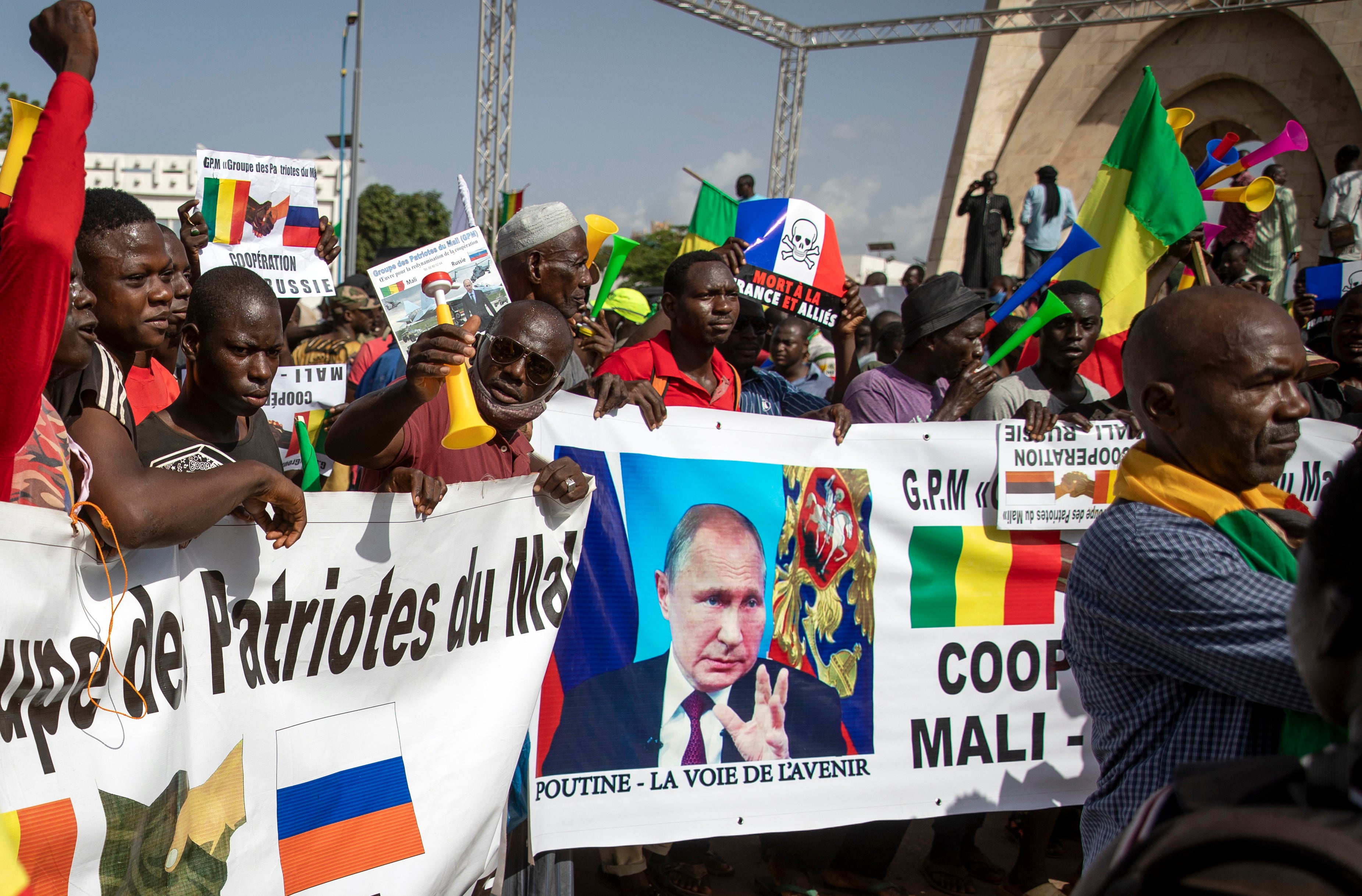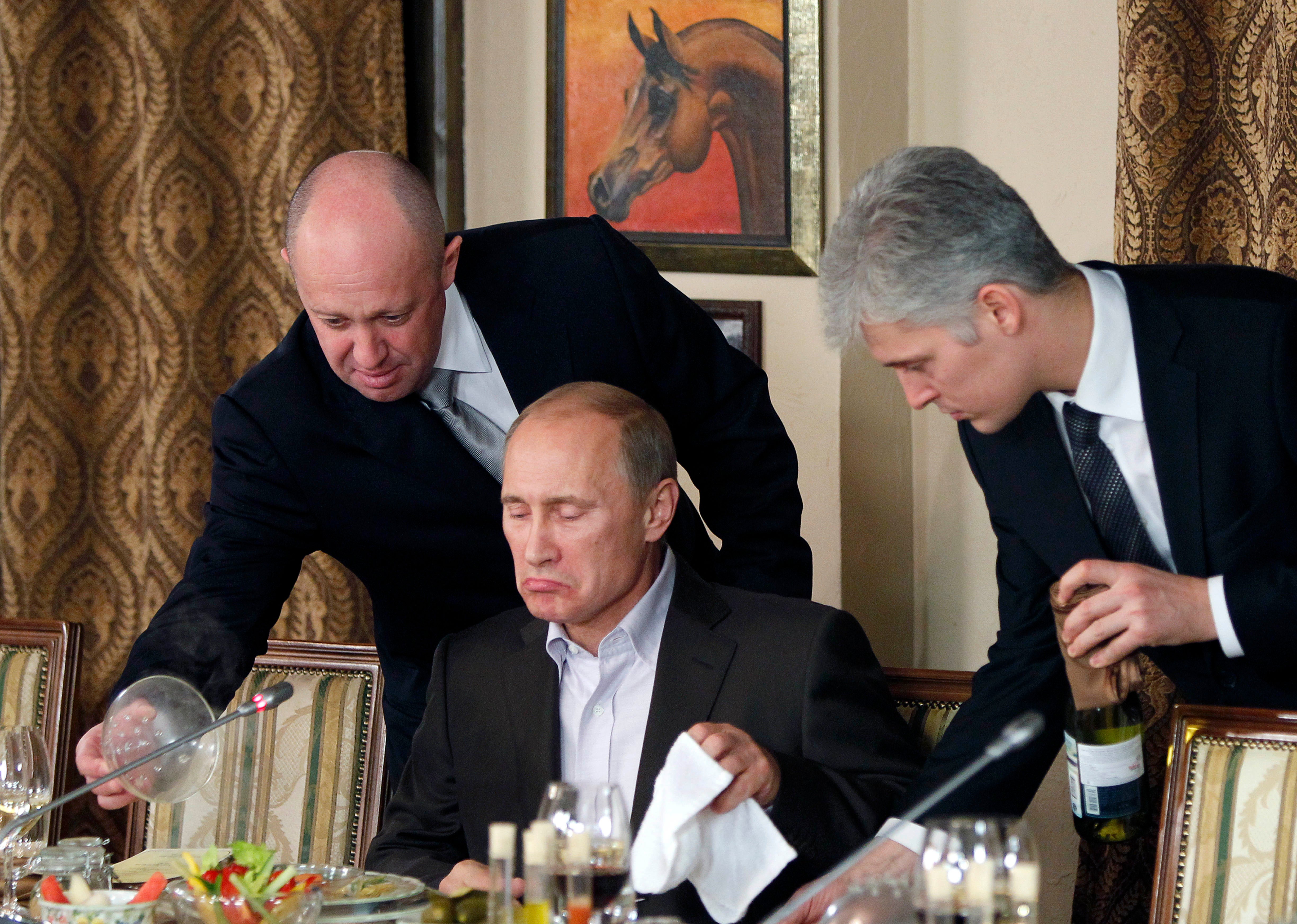‘Confrontation looks inevitable’: How Russia’s influence is growing in Africa
Several crises have helped create fertile ground for Moscow’s increasing influence

As the world focuses upon Russia’s brutal invasion of Ukraine, a second front is developing, one which threatens the future of Europe’s energy security and stands to limit the west’s global reach.
For at least the last decade, Russian influence, both hard and soft, has been extending through Africa, with Moscow typically trading security for resources as it extends its hold on capitals across the continent.
Like much of the world, Africa has fallen victim to the rising cost of living, with the attack dogs of poverty, inflation and public expectation snapping at the heels of governments whose capacity to deal with them remains mixed. All the while, the last vestiges of the pandemic continue to dog an exhausted population.
All of this has helped create fertile ground for Moscow and its export of arms, military training and the lucrative provision of Private Military Contractors (PMCs).
Since the 2014 annexation of Crimea, Russia has deployed 19 PMCs, including the Wagner Group, to African states, trading security for access to resources and access to one of the fastest growing markets in the world.
That Russia is making progress is unarguable. While many of Africa’s states were ferociously opposed to Russia’s invasion of Ukraine, during the United Nations’ March vote to condemn Moscow’s actions, 17 abstained. One, Eritrea, voted against it.
The significance of Africa to both the west and the wider world is self-evident. Positioned next to Europe, it contains both the capacity to play a significant role on the world stage and the mineral and energy reserves to help sustain that.
While once, briefly, the west enjoyed a diplomatic hegemony within the continent after the Cold War, that kind of dominance can no longer be assumed.
Today, China, Turkey and even Iran are investing heavily in the future of Africa, with each wanting to make as much ground in this latest scramble as possible. However, it is Russia, with its reliance on military exports, that is creating a marketplace of chaos where only its PMCs and weaponry offer any kind of solution.
Little of this is new. However, the war in Ukraine has thrust the importance of Africa to the fore. For European policy makers, seeking to pivot away from Russia for its energy needs, Africa, while unlikely to replace Russian supplies entirely, stands to contribute a significant chunk of the west’s future energy needs. In terms of proven gas and oil reserves, Africa holds an embarrassment of riches.
However, across many of the continent’s energy rich countries, Russian influence, either militarily or diplomatically, is growing. In oil-rich Libya, racked by years of internal instability, Wagner has established itself as a defining force in a fractured battlefield. In Nigeria, a vital energy hub, after the US pulled out of a deal over human rights concerns, Russia inked a deal in August to train and supply the country’s military.
Elsewhere, in gas-rich Mozambique, Russian company Rosneft entered an agreement with the government in 2018, expanding upon its existing footprint in Egypt. Moscow’s ambitions are unlikely to end there.
Democratic gains also stand at risk of increased Russian expansion.
In late 2021, Wagner troops arrived in Mali, ostensibly to work alongside French forces countering the Islamist insurgency in the country’s interior, which has expanded across much of the region. Now, as the French withdraw, Wagner’s focus appears to be as much on shoring up the ruling military junta as countering any Islamist threat.
According to a recent report, Wagner paramilitaries have accompanied Malian forces on numerous sorties which have resulted in the massacres of several hundred civilians. Moreover, like the insurgency Wagner is supposed to be countering, civilian massacres risk sparking a fresh wave of violence both within and beyond Mali’s borders.

A report by the Tony Blair Institute for Global Change paints a grim picture. While the west often finds itself constrained by concerns over human rights, the owners of Russia’s PMCs, many with strong links to the Kremlin, have no such scruples.
“For Russia, this isn’t a political debate,” Bulama Bukarti, a senior fellow with the Institute, told The Independent. “It sells security,” he said, before outlining a depressingly familiar pattern where conspiracy theories of western involvement in atrocities carried out by al-Qaeda and Isis are amplified through Russian social media.
While Ukraine has led to Russia redeploying some of its resources to the front line in Europe, this shouldn’t be taken as a lessening of focus, Mr Bukarti said.
“The sanctions on Russia have led to Putin viewing Africa as a second front in his war.”
Moreover, with the slaughter in Ukraine now almost entirely dominating much of the west’s imagination, both in terms of policy and humanitarian focus, incidents such as the unfolding catastrophe in Tigray, remain overlooked and, the longer that continues, the further the door to Russian influence inches open.
“In Africa, the west depends upon stability to build trade and further relations,” Mr Bukarti concluded.
“Russia thrives on instability. Confrontation looks inevitable.”






Join our commenting forum
Join thought-provoking conversations, follow other Independent readers and see their replies
0Comments